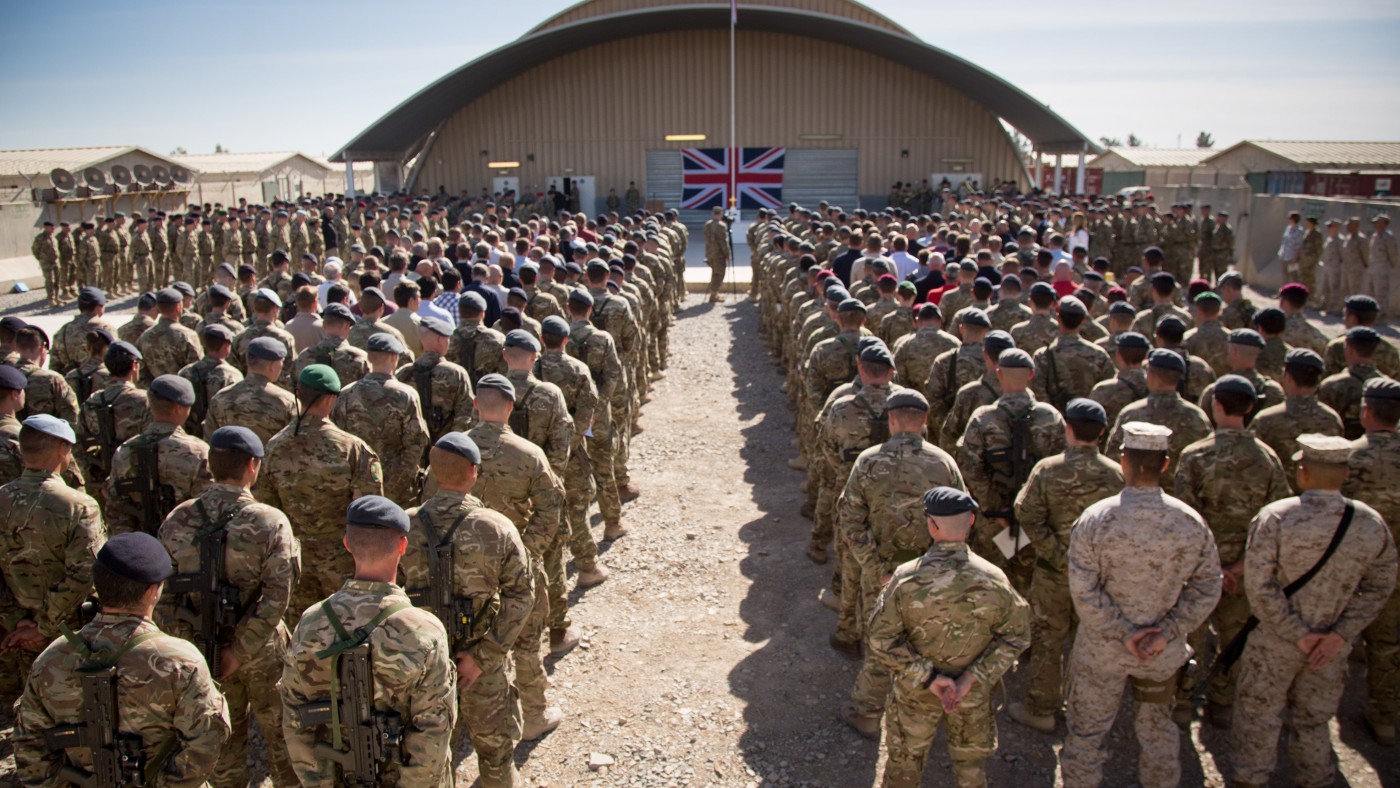A UK citizen army: how it would work
British military chief calls for war preparations to start, arguing that 'regular armies start wars, citizen armies win them'

A free daily email with the biggest news stories of the day – and the best features from TheWeek.com
You are now subscribed
Your newsletter sign-up was successful
The head of the British Army has said that the UK should train a "citizen army" ready to fight a future land war.
Highlighting the threat from Russia, and noting steps being taken by other European nations such as Sweden and Germany to put their populations on a "war footing", General Patrick Sanders said that "we must similarly prepare – and that is a whole-of-nation undertaking.
"Ukraine brutally illustrates that regular armies start wars, citizen armies win them."
The Week
Escape your echo chamber. Get the facts behind the news, plus analysis from multiple perspectives.

Sign up for The Week's Free Newsletters
From our morning news briefing to a weekly Good News Newsletter, get the best of The Week delivered directly to your inbox.
From our morning news briefing to a weekly Good News Newsletter, get the best of The Week delivered directly to your inbox.
Who would be involved?
Sanders, who is chief of the general staff, was not advocating for conscription or for an imminent call-up of volunteers, but his speech at a military conference this week was intended to be "a wake-up call for the nation".
He was "urging Britain to prepare for a mass mobilisation of tens of thousands of people, should war break out", said the BBC's defence correspondent Jonathan Beale. So a citizen army would almost certainly be comprised of individuals who are not career soldiers but rather civilians who can be called upon in times of need.
During the Second World War, the age range of those called up for service was 18 to 41, but in Ukraine, men aged 27 to 60, even without military experience, can currently be called up to fight.
Women have been allowed to serve in all combat roles in the British Armed Forces since 2018, so it is likely that women would be called up.
A free daily email with the biggest news stories of the day – and the best features from TheWeek.com
Military experts hope that Sanders's call will help create a "second echelon" of reserve forces that could number up to half a million trained volunteers, said the London Evening Standard.
What would they do?
A Whitehall source told The Times that the British military’s role in training Ukrainian civilians and soldiers could act as a "mission rehearsal" for the UK. British troops have trained more than 30,000 Ukrainians, "many of them civilians who have never fired a weapon".
These Ukrainians, including "former lorry drivers and shopkeepers", were "put through an intensive five-week course" and Ministry of Defence officials believe there are "useful lessons" for preparing a future "citizen army" in the UK.
Those taking part should be "trained and equipped" to fight, said Sanders. But people in a citizen army would not be automatically sent to the frontlines, because there are now a "myriad of roles" that previously did not exist on the battlefield, said the Daily Mail.
These include "more specialised missions" by special forces, as well as drone pilots, vehicle technicians and emergency physicians, plus "high-tech" roles "far away from the frontlines".
Who would be exempt?
Although there are no plans for a mandatory call-up, the demography of people conscripted in the past gives a steer on the make-up of a possible citizen army.
People who work in key industries that are regarded as vital to keeping the country running would probably be made exempt in the event of a war. In WWII, these included baking, farming, medicine, coal mining and engineering.
Based on current British armed forces rules, anyone who suffers from "deprivation of the senses", such as issues related to hearing or vision, would also probably be exempted, along with people suffering from psychiatric or cardiovascular issues, or from bone and joint problems, said LBC.
What has the reaction been?
Downing Street "does not seem keen" on the idea, said the BBC, after a spokesperson said that General Sanders' hypothetical scenarios were "not helpful".
The plan is "unpopular and unaffordable", said The Guardian in an editorial.
According to a poll of 2,000 people reported in the Daily Mail, less than 10% of Britons would be willing to take up a combat role if the country faced a military threat. The researchers found just 27% would "unquestionably" join a war effort if the nation came under attack in a similar way to Ukraine.
Sanders said the Cold War peace dividend was over, noting that "over the last 30 years, the army has been halved in size" and that "in the last 12 years, we’ve absorbed a 28% reduction".
Military experts believe that "in the time of war", far more people would be motivated "to sign up to defend their nation", said The Times.
General Nick Parker, a former Commander Land Forces, told Times Radio that the UK must "make sure that we are as resilient as we possibly can be, and to be prepared to question whether the forces that we have are the right ones for what may happen in the future".
Chas Newkey-Burden has been part of The Week Digital team for more than a decade and a journalist for 25 years, starting out on the irreverent football weekly 90 Minutes, before moving to lifestyle magazines Loaded and Attitude. He was a columnist for The Big Issue and landed a world exclusive with David Beckham that became the weekly magazine’s bestselling issue. He now writes regularly for The Guardian, The Telegraph, The Independent, Metro, FourFourTwo and the i new site. He is also the author of a number of non-fiction books.